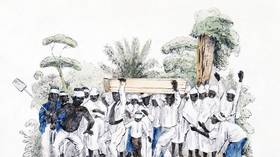EU nation apologizes for ‘crime against humanity’

Dutch Prime Minister Mark Rutte has offered a formal apology for his country’s involvement in 250 years of slavery, calling it a “crime against humanity” in a speech in the Hague on Monday.
“Today on behalf of the Dutch government, I apologize for the past actions of the Dutch state,” Rutte said, stating that the past “cannot be erased, only faced up to.”
He noted that although nobody alive today “bears any personal guilt” or responsibility for slavery, the Netherlands as a state is still guilty of having “encouraged and profited” from it.
“People were commodified, exploited and traded in the name of the Dutch state,” he continued, adding that slavery had caused “great suffering, that continues to affect the lives of people now…And for that, on behalf of the Dutch state, I apologize.”
The prime minister’s remarks come amid a wider reconsideration of the Netherlands’ colonial past after the country set up a national advisory panel following the 2020 killing of George Floyd in the US. While Rutte has ruled out reparations, the Dutch government is expected to set up a €200 million ($211 million) educational fund, as well as providing some €27 million for a slavery museum.
The Netherlands formally abolished slavery in 1863. The slave trade was considered to be the driving force behind the Dutch economic and cultural “golden age.”
Prior to Rutte’s speech, however, a number of activists expressed their disdain for the way the Dutch government decided to issue the apology. Some critics claimed the process was too quick and should have been done in consultation with descendants’ groups.
Some also argue that the apology should have come from the Dutch King, Willem-Alexander and been made in the former South American colony of Suriname on July 1 next year, which will mark the 150th anniversary of the day slavery finally ended there.
Rutte has acknowledged choosing the right time for the announcement was a “complicated matter,” and noted the Dutch government was sending representatives to give speeches in several former colonies, including Suriname and the Caribbean islands of Sint Maarten, Sint Eustatius, Curacao, Saba, Aruba and Bonaire.













